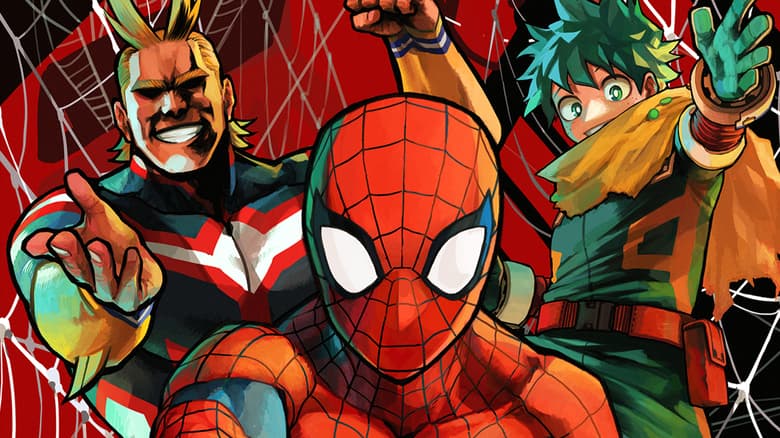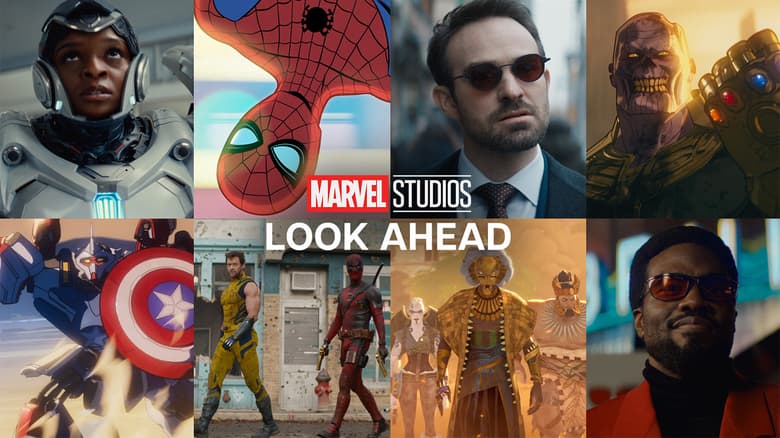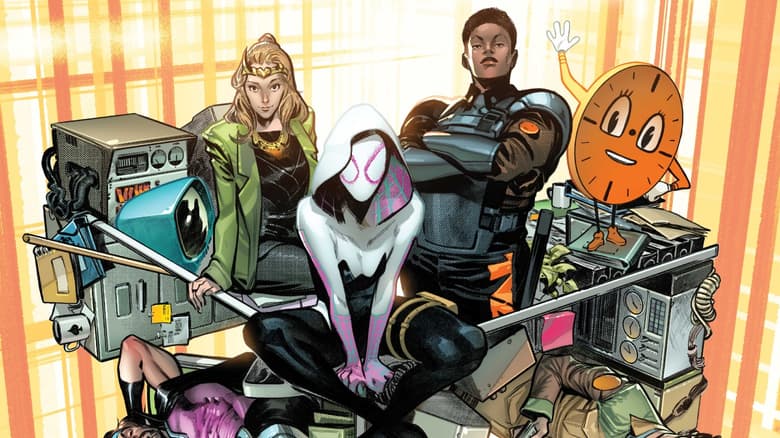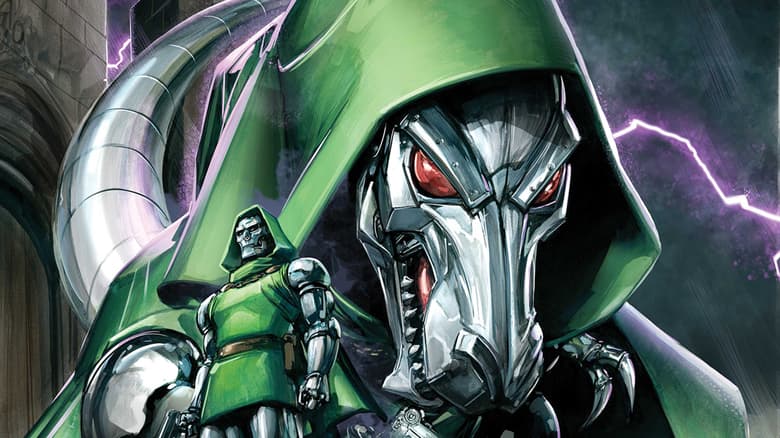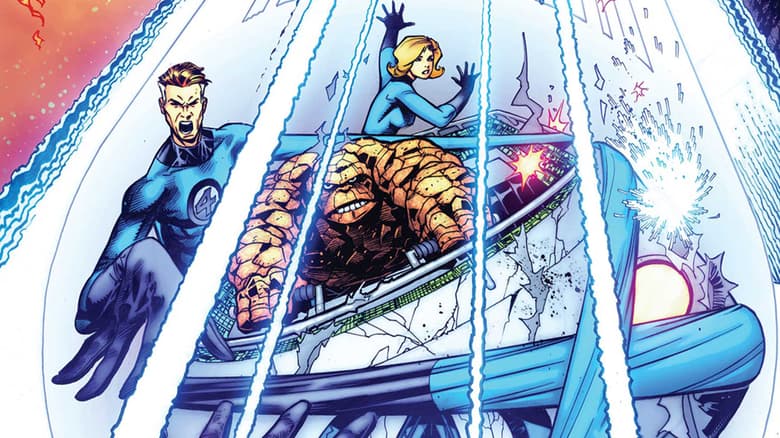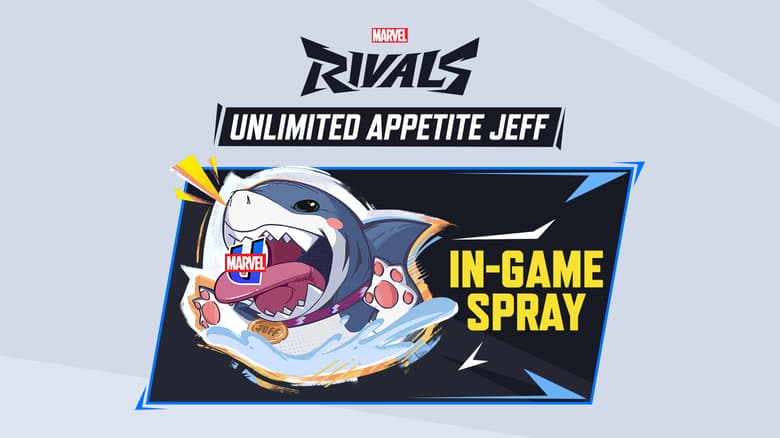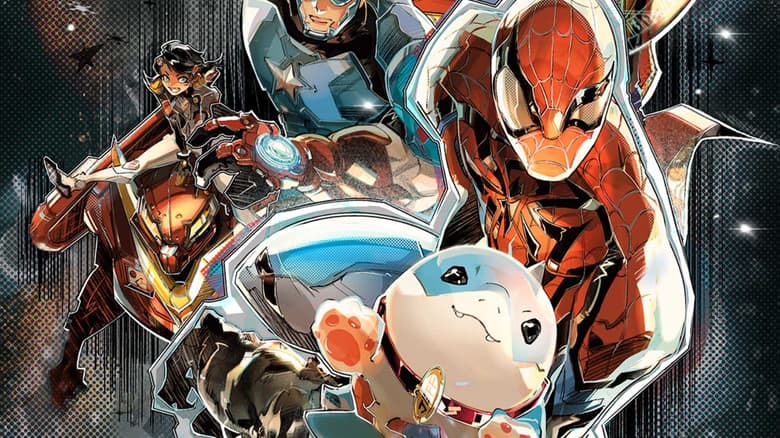The Current Iron Age
Ongoing ‘Iron Man’ writer Christopher Cantwell reflects on a year-plus run with the Armored Avenger plus covers what’s next for Tony Stark. (Marriage?)
In September of 2020, writer Christopher Cantwell inaugurated a new ongoing IRON MAN series with the promise of taking Tony Stark in exciting directions previously unexplored. In the 19 issues since, the Golden Avenger has journeyed deep into the cosmos, become an omnipotent figure, explored the Multiverse and, perhaps most shockingly given the character, found love.
[RELATED: Tony Stark and Patsy Walker’s Greatest Hits (So Far)]
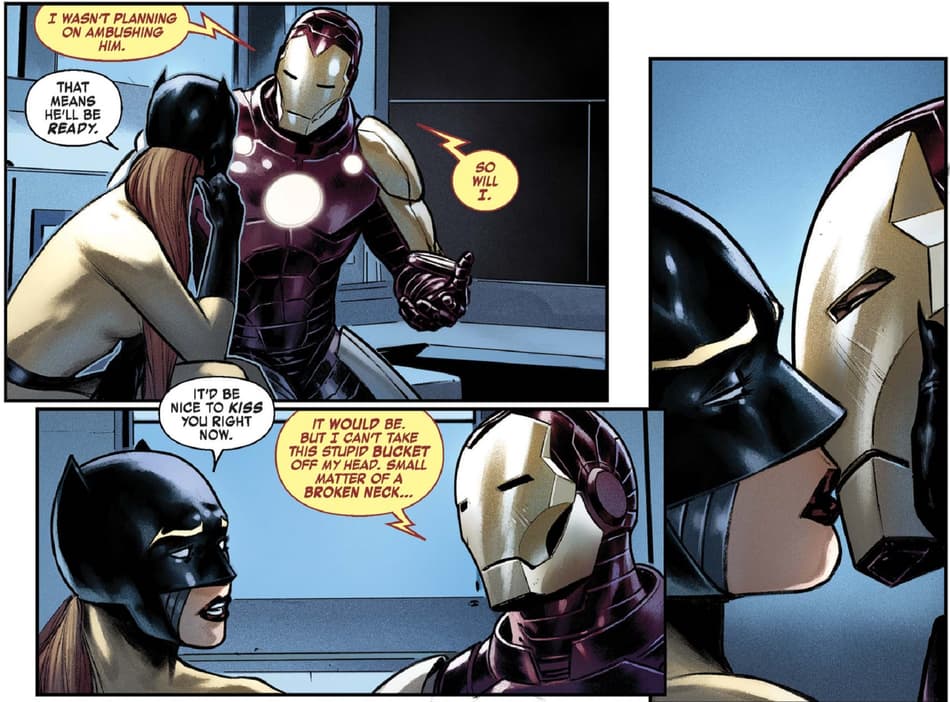
Familiar threats such as Korvac and, believe it or not, Stilt-Man, gained a new edge under Cantwell’s pen. Reliable allies including the Avengers stepped aside for the unlikely likes of Frog-Man and Avro-X. Nobody can accuse this storyteller (whose work expands into television) of being anything less than ambitious.
With the latest Korvac saga in the rearview and Tony moving past his cosmic god phase, it seemed a perfect time to debrief with Cantwell on the major moves he’s made so far, as well as tease out a bit of what lies ahead.
What was your initial pitch for the Korvac super-arc going in as the new writer on IRON MAN?
CHRISTOPHER CANTWELL: Getting a chance at a massive opportunity like this made me ambitious. I knew from the beginning that I wanted to swing for the fences on the arc’s length. Initially I think the pitch was 15 issues, but it ballooned to 19 once I included the solo Hellcat story in issue #8, the solo Korvac story in issue #9, and the two-parter of Tony marooned and isolated on the planet with Stilt-Man in issues #10-11, which is its own mini-arc unto itself. Initially, I had Korvac’s goals as more complicated, but they were always utopic. [Editor] Tom [Brevoort] and the editing team were very patient as I kept emailing them retellings of the arc that were more and more distilled, until it became what it is. Korvac had much more of a techno-organic plan initially that involved some assimilation-type moves on Earth, but his goal was always to remake the universe. Ultimately I went with what we have, where the big goal for him was getting the power to do so, and where we only get a tiny glimpse of his plans with Tony and Patsy…which they promptly dismiss as limited and foolish. The morphine addiction thread came later, with the idea of Tony suffering an intense physical defeat when Korvac breaks his neck. But it felt rich and like something I could pull through the whole story as something that spoke to his addiction tendencies without being redundant with what’s been done in the past. It also spoke to his humanity, which I wanted to do from the beginning.
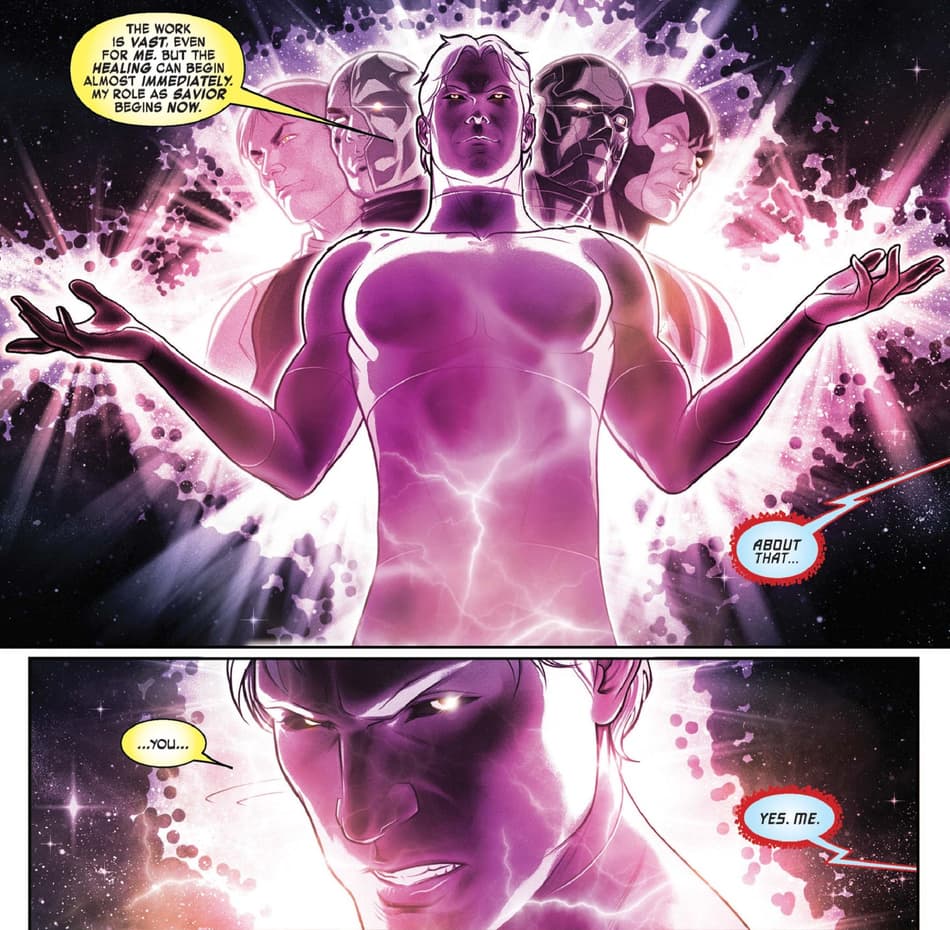
Why was Korvac the right fit as far as an antagonist here?
CHRISTOPHER CANTWELL: Well, personally, I’m obsessed with Marvel’s Bronze Age and he’s a classic one from that era. And I couldn’t get over that he easily killed all the Avengers. That made him extremely formidable. But in looking even closer, the context of why he kills them, what he’s trying to do, felt very rich for a villain. He thinks he knows best and can make the universe a better place. There are clear parallels there with how Tony sees himself. Also Korvac has repeatedly reinvented himself, just as Iron Man has. And he can match Tony in intellect. But the difference between the two of them is simple to me—at his core, Tony is a courageous hero and willing to face his flaws. Korvac is in the end a coward and he’s always been running from that. I think what Korvac does at the end of this story is maybe the first truly heroic thing he’s done. And his mind simply can’t handle that.
How much research did you do as far as reading past Korvac appearances and trying to get inside his head?
CHRISTOPHER CANTWELL: I read the “Korvac Saga” and reread it again. I kept it on hand to reference. I also wanted to get a sense of him before he cosmically changed so I made sure to read some of those issues as well. I wanted his latest incarnation in our book to feel like an evolution of the character that still was connected to who he’s been in the past.
What made Hellcat a good fit as a sounding board and guiding force in this run?
CHRISTOPHER CANTWELL: If I was going to take Tony on this cosmic odyssey, I wanted to pair him with someone as grounded as possible. Patsy has been very grounded and lucid much of the time. She’s also less familiar with Tony’s hijinks than say, Rhodey, so she has fresh eyes on Tony and forms her own opinions on why he is the way he is. But cutting against that grounded-ness is Patsy’s own history with instability, mental and otherwise. So her grounded-ness is hard won, and when it’s jeopardized I think we, and Tony, really feel the weight of that.
Were Tony and Patsy always going to get together or did the story just unfold that way for you?
CHRISTOPHER CANTWELL: I wanted them to get together fairly early in the story because I wanted to see them both churn through a real relationship while they went through the larger crisis. So we could explore all the ups and downs between them in context with this battle to save the universe. Even if they won, there would be a question of if their relationship would survive. It does, but it also evolves into something deeper and more complicated by the end. I wanted to give them both a truly complex relationship with each other by the conclusion of the story.
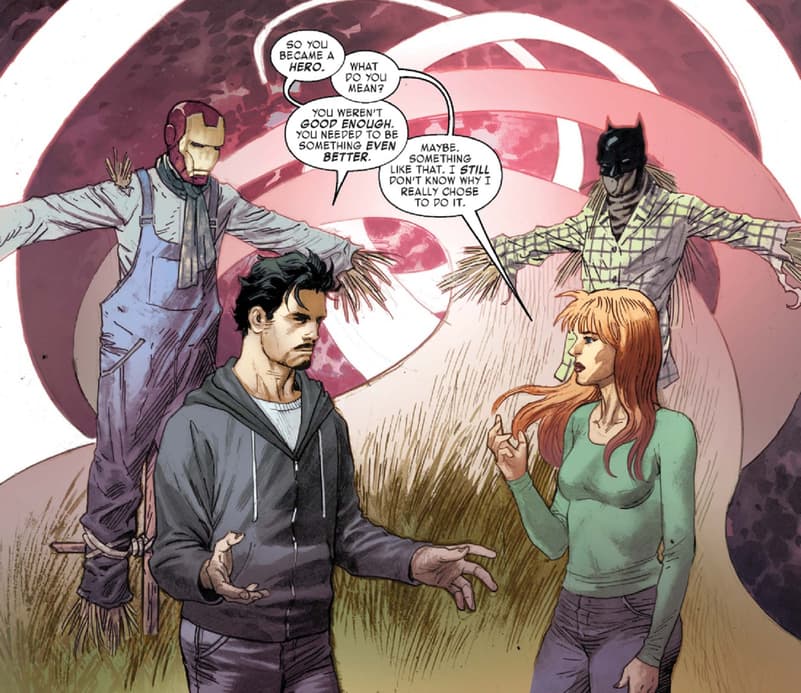
What do you see as the future for Iron Man and Hellcat?
CHRISTOPHER CANTWELL: Well, we know in IRON MAN #20 Tony will ask Patsy to marry him. But again, there’s story context as to why he’s doing that when he’s doing it. And there’s a lot there for both of them to process. But they’re in each other’s lives for good, I would say…it just depends on the future.
What were you trying to say with the excursion to Stilt-Man’s planet in the middle of the story? Why break up the larger arc with this diversion?
CHRISTOPHER CANTWELL: I wanted to rest the dogged pursuit of Korvac with a side adventure. I didn’t want to exhaust the main story, so I chose to do a mini-arc that was a microcosm for the main story and its themes. Stilt-Man’s goals are very similar to Korvac’s, just on a smaller scale, and he also believes the ends justify the means like Korvac does. I wanted Tony to be in a place likewise where he could really buy into that point of view for a moment and fall for the idea of a false utopia. When he comes out of the Stilt-Man mini-story, his opinions about Korvac have both been tempered and strengthened.
Why Stilt-Man? It was a great call, but how did you come up with it?
CHRISTOPHER CANTWELL: Wilbur Day was one: fun to do that with, and two: I felt like the character was brilliant intellectually but had in the past not had a chance to flourish beyond smaller villainy because the heroes were always quick to take him down. I wanted to see what one little guy with a big mind could do if given a whole planet as a playground to design as he wished. He wanted friends in the end, and followers, and a place where he could feel important for once. And he actually pulled it off…until Tony showed up. And he brought Tony to kind of show off, like, “look what I did.” And he got Tony to buy in for a second. But that bravado and need for approval from such a massive discerning intellect proved to be his downfall.
Where did the choices for somewhat obscure guest stars in this run come from? Why is the story better with Frog-Man and Scarlet Spider than having the Avengers riding shotgun?
CHRISTOPHER CANTWELL: Well, one directive with the book was to get Tony away from his comfort zone, at least at first. That meant away from the Avengers, and [War Machine], and folks like that. Plus, I wanted him to need help, which to me thematically is always an important thing Tony is working on. But I also wanted characters that were so available I could take them into space. So I hatched the idea for the “Space Friends.” There have been so many great secondary and tertiary characters created over the decades of history that good characters aren’t hard to find for something like this. I also think it’s no mistake a few of them were well-written and even co-created by J.M. DeMatteis, who I read a lot growing up.
What did Tony learn about himself as a result of his time as the Iron God? How do you think it will change him going forward?
CHRISTOPHER CANTWELL: I think Tony mistakenly believed that with cosmic power he was also given carte blanche to make decisions for other people without consulting them…which is actually a mistake Tony makes a lot. With the power, Tony got hyped that he could make the world a better place (just like Korvac wanted to), and got ahead of himself. I think everything in him was also elevated in that experience, so when people got in his way—even friends and allies—he felt threatened, and because he had such unwieldy abilities he lost control and hurt people. So the stakes were raised for him there. I think moving forward Tony is going to try not to do everything himself and on his own. I think Tony is going to learn to ask for help more. He’s always working on being a better collaborator and now he has the opportunity to do so.
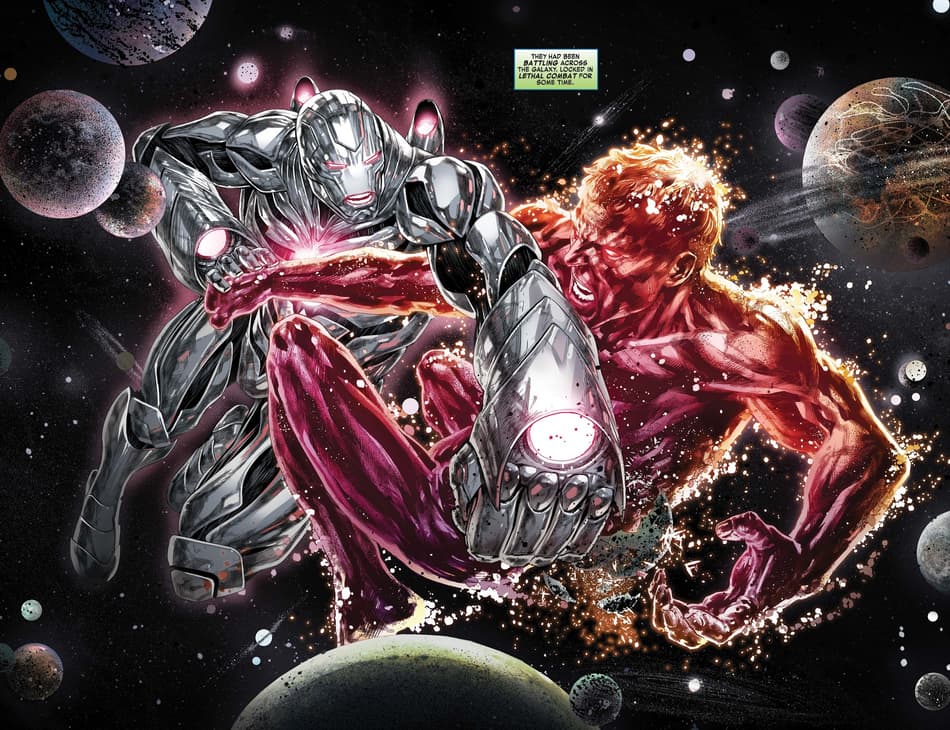
What will the impact of this story be on other characters like Patsy and Jim Hammond, the original Human Torch?
CHRISTOPHER CANTWELL: Patsy inadvertently opened up some old wounds because of her experiences with Korvac (and Tony). In the IRON MAN/HELLCAT ANNUAL #1 coming this summer, that’s going to be explored more. Patsy still has some darkness to face internally that she’s maybe been compartmentalizing too much.
[RELATED: Patsy Walker Throws One Hell of a Party in ‘Iron Man/Hellcat Annual’ #1 First Look]
Jim Hammond was in a real isolated place of self-hatred before Korvac found him and brought him back out into the open. He used Jim, but Jim was able to shake that off and work with Tony to fight back. Jim also got his old android body back, so he’s feeling more himself again. I don’t know where he’ll show up down the road in the near future, but I imagine he’s reengaged with life and others moving forward.
Was it fun bringing in your old pal Doctor Doom in particular but also Silver Surfer for the final act?
CHRISTOPHER CANTWELL: Absolutely. I can’t leave Doctor Doom alone. I love writing him so much. He’s more of a little guest star here, but he has so many parallels to Tony and they’ve been in each other’s orbits in interesting ways in the past. I also love Silver Surfer. The Ron Lim/Ron Marz run of the 90’s was my favorite book of that time. I could not get enough of it. I love their new book SILVER SURFER REBIRTH. I would kill to write more of the Surfer in the future. In a way, the whole cosmic slant of this arc was heavily influenced by what Ron and Ron did with the Surfer.
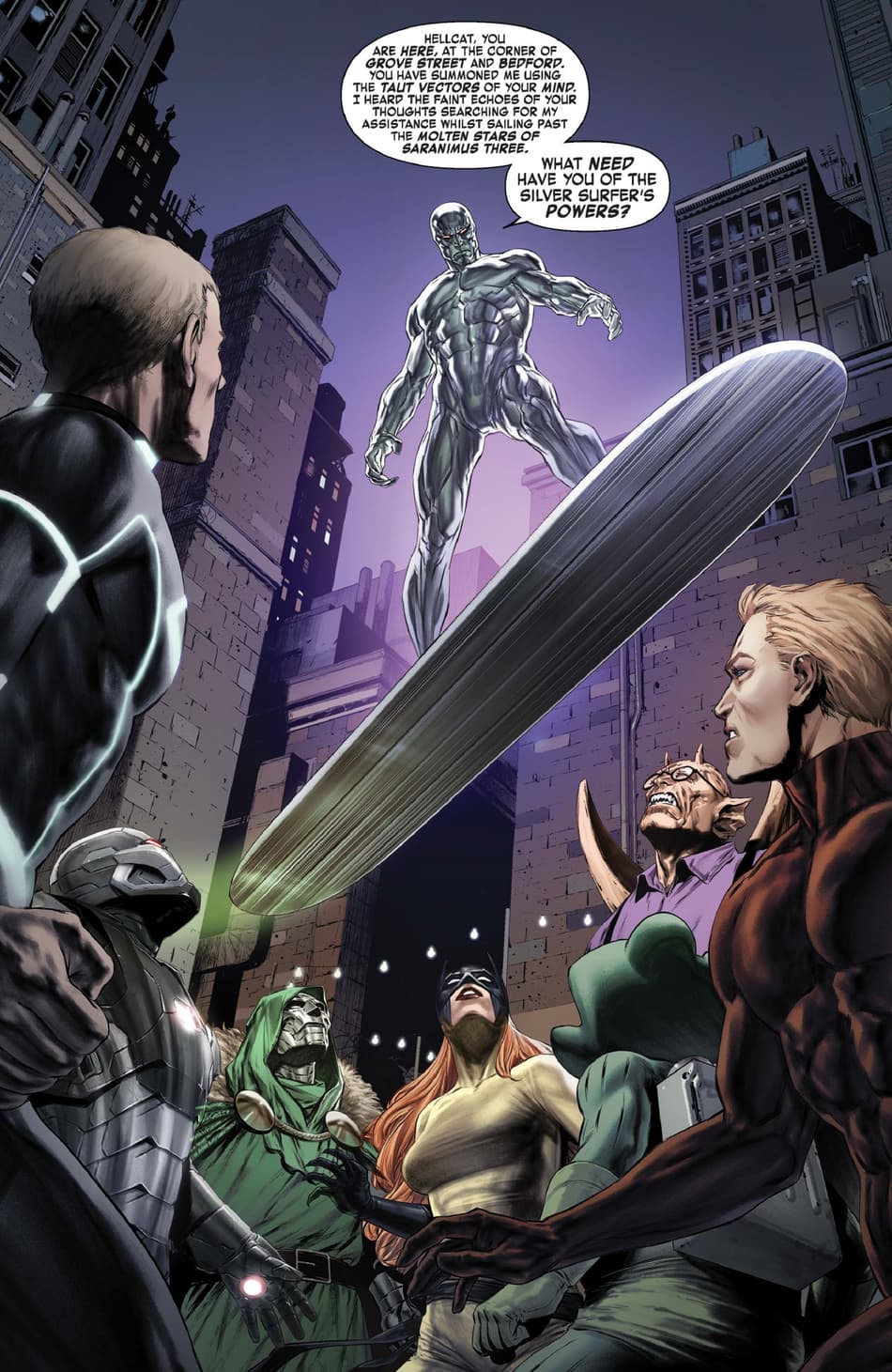
Do you think we’ll see Korvac again?
CHRISTOPHER CANTWELL: It’s a tiny bit ambiguous what happens to him, so the door is cracked open…but it’s also not ambiguous and final. I would prefer he not immediately appear so soon after the end of this arc. I think we told a great story with him and really imbued him with some emotional complexity that paid off quite tragically and with impact. But…it’s comics. Who knows?
How was it working with multiple artists over the course of this story?
CHRISTOPHER CANTWELL: Everyone brought some unique elements that enhanced the run in my opinion. Angel [Unzueta] is incredibly kinetic. I loved his “Taa II” issue especially. Ibraim [Roberson] killed the cosmic battle issue…it’s so epic. Julius [Ohta] did the Space Friends dynamic especially well in issue #16 (and his Jim Hammond is a direct homage to Carl Burgos that I wish we saw more often). And Lan [Medina]’s issue #18 was perfectly melancholy and dreamlike. I’m now doing a second (more condensed arc) with Angel that will take us through issue #25—legacy issue #650—and it’s great to see him bring his kind of nimbleness to the story images.
What’s next for you both on this title and elsewhere?
CHRISTOPHER CANTWELL: The next arc for IRON MAN is 6 issues, starting with issue #20. #20 and issue #21 are kind of one-shot stories that harken back to the old heyday of one-and-done issue stories that I love, but there is scaffolding being laid in the background for a larger story. The whole arc is called “Source Control,” and it’s grittier…more noir in feel. Very Denny O’Neil inspired. It’s also a more intimate story character-wise, focusing primarily on Tony and Rhodes, with just a few other folks. More tight-knit, and rooted in classic Iron Man themes of technology and weaponry. But there are still plenty of Bronze Age references that I can’t get enough of.
And I’ve got two Marvel limited series that I’m super excited about that haven’t been announced yet, focused on characters I love. Plus, I’m doing STAR WARS: OBI-WAN on the Star Wars side of things, which has been amazing. And I still have my creator-owned books like “The Blue Flame” with Vault Comics and others yet to come!
Next up for Tony Stark…matrimony? See the question popped in IRON MAN (2020) #20, coming to print and digital comic shops June 15!
And, start IRON MAN (2020) on digital comics subscription service Marvel Unlimited with new issues added monthly.

